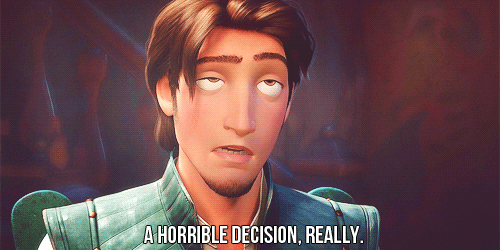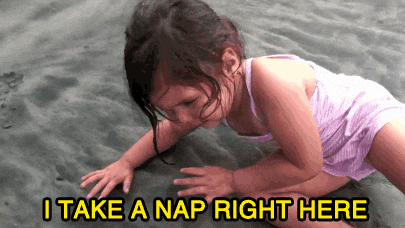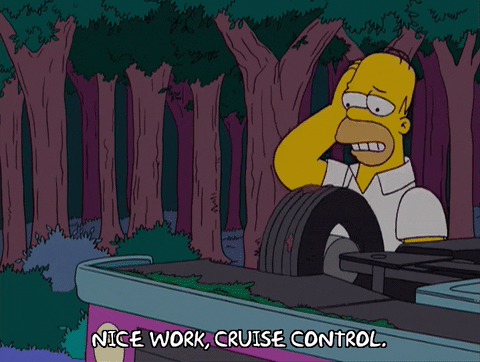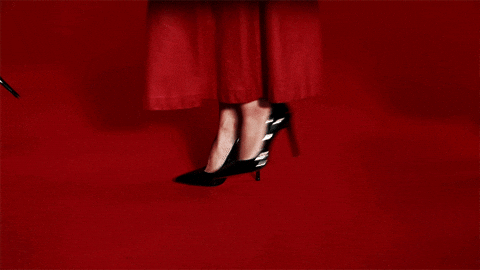(...and why it happens to the best of us...)
Our lives are filled with bigger and smaller decisions that determine our path through this complex world. While good decisions make us happy, create healthy relationships and lead to material and psychological rewards, the bad decisions we make lead to regret, self-blame and other emotional stress. Because of this now widely acknowledged importance of the decisions we make, researchers from various fields are studying the processes of decision-making (Kahneman, 2003).

First of all, as humans we all operate within the constraints imposed by our cognitive assets and external surroundings, such as the task at hand. This concept is called “bounded rationality” and has been introduced around the 50s by Herbert Simon (and yes, it is only a concept, because there was a time when scholars were actually accepting the notion of “fully rational” people. That's because economists like to think in concepts and models which don't always represent reality!). Making an optimal choice puts multiple demands on people, which are (1) to consider all available bits of retractable information, (2) to retrieve the values of this information accurately, (3) to weight the different bits and pieces properly, (4) to integrate all the information for each alternative, and (5) to examine all possible alternatives. Whoa! No wonder that people will sometimes hit a wall when trying to address these five demands and instead make a suboptimal, aka “bad” decision!

As the demands on us with our limited cognitive resources increase, we then tend to use methods that reduce the effort we expend on the evaluations for the choice to be made. The methods that allow decision makers to process information in a less effortful manner than one would expect from an optimal decision rule are generally called “heuristics”. I could write a whole book on the different heuristics that are known to be used by individuals! It would take me a few years though, and since other scholars have already done a great job in doing exactly that, I will gladly refer you to them and a google search of the word “decision-making heuristics” ;-) . Here, I will rather explain a more general processing mechanism now that is also responsible for some pretty frequent misjudgments and bad decisions.

Many choices we make in our lives, especially those we would call “small” decisions, are made by relying on effortless and intuitive thinking instead of slow and deliberate reasoning. Many scholars now support the theory that decision-making is a dual-process in which one system lets us make relatively quick, effortless and intuitive reactions, and another system, often called “executive control" or just system 2, keeps those reactions in check and overrides them after more analytical and deliberate processing. System 2 can be generally viewed as a collection of cognitive abilities one possesses, that enable the individual to modify their thoughts and actions (Schmeichel, 2007).
Research shows now that every stimulus evokes an affective evaluation and intuitive reaction in us, and this evaluation can occur either with or without awareness of it happening. But such an intuitive judgment is expressed overtly only if it is endorsed by our executive control system.
Here's the caveat: the executive control system consumes the mental resources one possesses, such as the ability to select a focus of attention, to maintain a goal, to keep information active in the working memory or to switch between mental tasks. We need both the availability of these mental capacities as well as the willingness to exert them for the executive control to ... well, take control. Thus, unfortunately, System 2 can be (relatively, we’re talking seconds here!) slow, and the self-regulation resources we have can be disrupted for example by time pressure or prior resource depletion through monitoring another task. If this is the case, we are more likely to rely on intuitive thinking and the less effortful processing system 1.
The so-called "Stroop task" illustrates this quite nicely:
People are instructed to report the color in which words are printed, and in studies it was observed that they tend to stumble when the word is the name of another color (e.g., the word PINK printed in orange):

The word is automatically read, and activates an initial reaction (“orange” in this case) that competes with the correct response “pink”. With such a rather easy task (also, we’ve all heard of that test so we’re on our toes), errors are rare in the Stroop test - there generally is successful monitoring and control of the instinctual reaction. But the mental conflict does lead to the study subjects’ hesitation and delays in answering. The suppression of automatic responses is indeed effortful, and its effectiveness is reduced by stress and distraction.
There are experiments to test just how well the executive control system monitors initial judgments. Many scholars find it to work quite casually, actually.
Consider the puzzle:
“A bat and a ball cost $1.10 in total. The bat costs $1 more than the ball. How much does
the ball cost?”

Many people asked (including myself) had an initial tendency to answer “10 cents”. This is because $1.10 separates instinctively into $1 and 10 cents, and 10 cents is about the right magnitude. A surprisingly high rate of people stick with this immediate impulse and reported it in the experiments conducted. This shows just how lightly System 2 monitors the output of System 1! The right answer would have been 5 cents, by the way ;-)

People are not accustomed to thinking hard, and they often also lack the commitment to put in the additional mental effort when an answer makes sense intuitively. We are often too happy to trust a plausible judgment that quickly comes to mind. This happens not just with little math exercises, but on a daily basis when we make decisions as consumers (aka the choice between two similar products) or about actions we should take to reach our new year’s resolutions (aka self-regulation). Both self-regulation and the mental processing required to make a choice actually draw from the same resources required for executive control.
Makes sense, right?
One personal example: After an all-day and thinking-intensive seminar, I came home and my first instinct was “Okay, I was productive enough for a Saturday, I won’t go to the gym after all.” Thankfully, I had a 20min walk home without headphones or any other distractions that made me rethink that initial reaction, and I found way more advantages of going to the gym (it was only 6pm, I didn’t go to the gym in the last days and won’t be able to the next 2 days, my back hurt from sitting and the movement would help me alleviate that pain, I would sleep better and of course burn some calories of that amazing 2 course Thai lunch I had, and so on) … enough reasons, you’d think. But if I hadn’t debated with myself about going or not I wouldn’t have. Another more general example: We all know that going to the supermarket hungry is NOT a good idea - our executive control is already preoccupied with regulating our hunger and appetite, and then we need to make the important decision whether we really need that second pack of white chocolate macadamia cookies or the freshly baked croissant in the bakery isle. Mh!

At this point, I need to add that there are scholars who critique the justification of “bad decisions” solely with the resource depletion of the executive system. We don’t know for sure how much of the lack of self-control we observe in situations can be explained by it. It is only one of multiple factors that play a role when it comes to decision-making. One other concept that also plays a role, for example, is how high a person ranks on Conscientiousness, one of the Big Five personality traits. Conscientiousness directly describes a person’s ability to exercise self-discipline and control in order to pursue their goals, and allows people to more easily forego immediate gratification for the sake of long-term achievement. If you're interested in this, just have some patience - I am currently working on a blog post about the Big Five personality traits :-)

Maybe knowing about these two systems can help you in certain situations. Now you know that when you have an important decision to make, you can try to make it earlier in the day when the control system has not depleted its resources so much yet. Another strategy is to automize certain decisions, for example some people wear the same outfit on certain days of the work week, or eat the same dinner for a few days in a row. That’s why meal prep works so well when you have nutritional goals. You could also sign up for a gym class in advance, at a time when you’re maybe more motivated to make the decision to go than immediately after a day of working. That moves the choice to be made to a time when the executive control system has not yet depleted as much mental in resources to make a more optimal decision.
Or, you might just find it super interesting, like me, to understand your brain functions a bit better, and don’t necessarily want to change any of your (decision-making) behaviors. Either way, our brains are designed to make intuitive judgments and base choices on affective reactions, and it is human to lack self-control or a clear justification of your actions in certain moments. So, please just do me one favor and don’t be too hard on yourself when you do eat that chocolate bar once in a while, after a straining day. All in all...

... or gal ;-)
xx
Valli
Sources:
Kahneman, 2003: A perspective on judgment and choice: mapping bounded rationality.
Pocheptsova et al., 2009: Deciding without Resources: Resource Depletion and Choice in Context. --> The main paper I was reading for our Judgment and Decision-Making Class
Schmeichel, 2007: Attention control, memory updating, and emotion regulation temporarily reduce the capacity for executive control.
Simon, 1945: Administrative behavior. (And other papers, e.g. Models of Man from 1957)

コメント